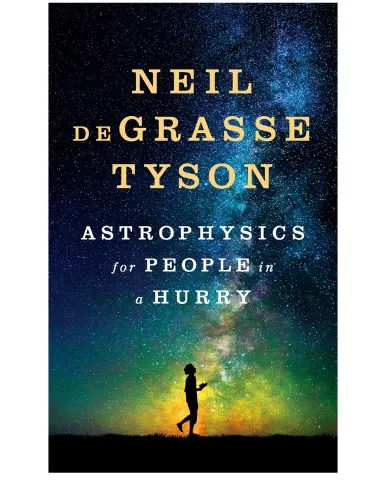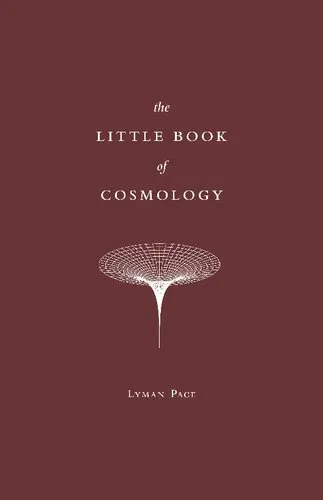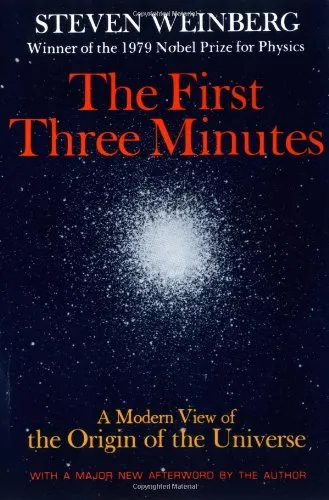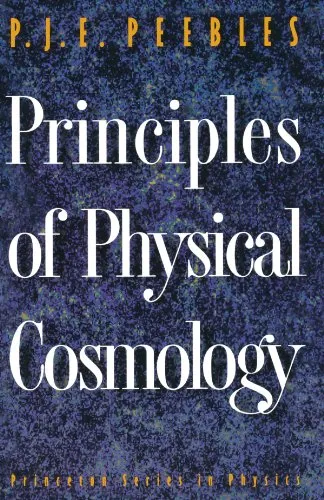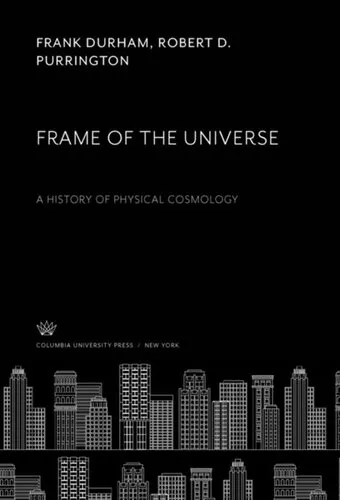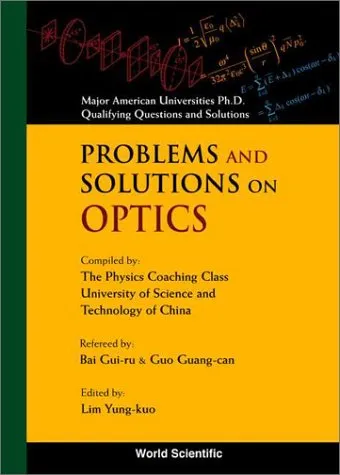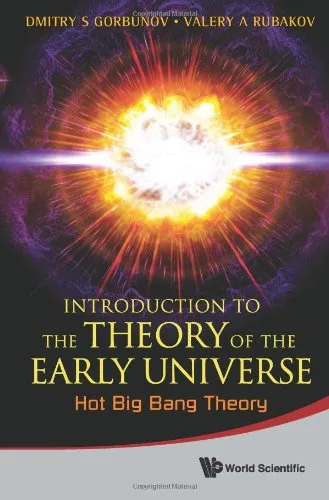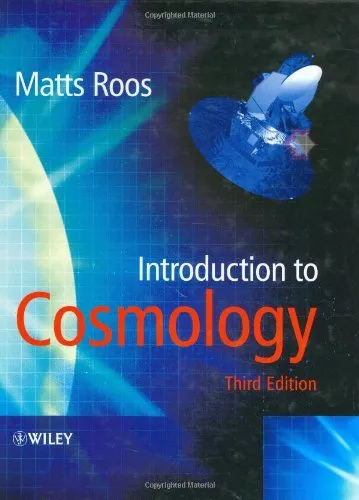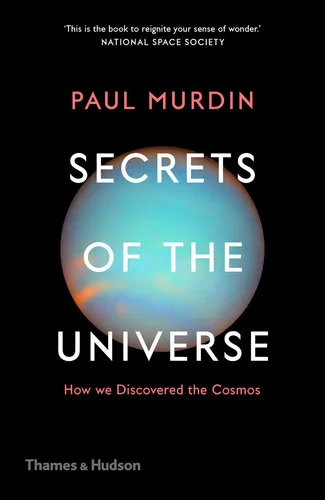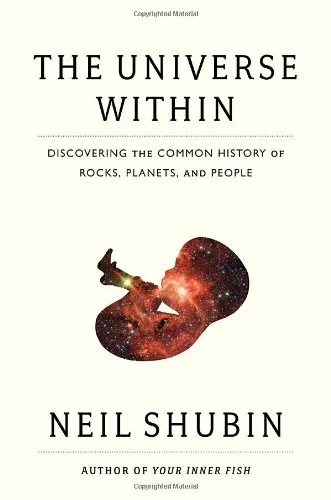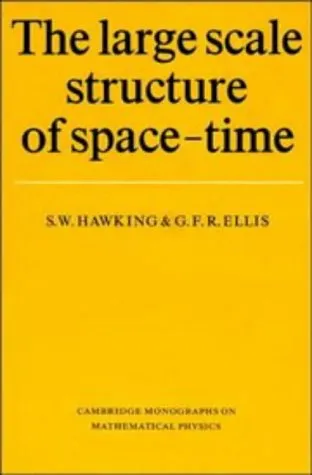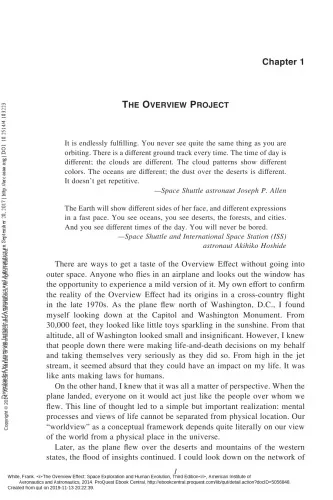Cosmic Dawn: The Search for the First Stars and Galaxies
4.0
بر اساس نظر کاربران

شما میتونید سوالاتتون در باره کتاب رو از هوش مصنوعیش بعد از ورود بپرسید
هر دانلود یا پرسش از هوش مصنوعی 2 امتیاز لازم دارد، برای بدست آوردن امتیاز رایگان، به صفحه ی راهنمای امتیازات سر بزنید و یک سری کار ارزشمند انجام بدینکتاب های مرتبط:
معرفی کتاب "Cosmic Dawn: The Search for the First Stars and Galaxies"
کتاب "Cosmic Dawn: The Search for the First Stars and Galaxies" به قلم جورج ری، یک سفر جذاب و علمی به گذشته کیهان است. این کتاب درباره لحظههای ابتدایی جهان نوشته شده است، زمانی که نخستین ستارهها و کهکشانها شکل گرفتند. به بیان دیگر، این اثر پلی است بین علم کیهانشناسی، تاریخ آغاز کیهان و پژوهشهای پیشرفتهای که به دنبال کشف رازهای این دوره شگفتانگیز در تاریخ کیهان هستند. در ادامه، بخشهای مختلف این کتاب را به همراه اهمیت آن بررسی میکنیم.
خلاصهای از کتاب
در این کتاب، نویسنده ما را به زمانی بازمیگرداند که کیهان هنوز تاریک و فاقد نور بود. اصطلاح "Cosmic Dawn" به آغاز روشنایی در جهان اشاره دارد، زمانی که نخستین ستارگان شروع به تشکیل و تابش کردند. جورج ری با استفاده از توضیحات علمی پیچیده اما قابل درک برای عموم، دورهای را توصیف میکند که در آن گازهای هیدروژن و هلیوم تحت نیروی گرانش جمع شدند و اولین ستارگان در نتیجه این فرآیند متولد شدند.
او همچنین به بررسی ابزارهایی مانند تلسکوپ فضایی Hubble و تکنولوژیهای پیشرفتهتری مانند James Webb Space Telescope میپردازد که به دانشمندان کمک کردهاند تا به اعماق کیهان و گذشته بسیار دور بنگرند. این کتاب نه تنها مروری بر تاریخچه کیهانی است، بلکه نگاهی به پژوهشها و چالشهایی دارد که ستارهشناسان پیش روی خود دارند.
نکات کلیدی کتاب
- توضیح چگونگی تشکیل اولین ستارهها و کهکشانها با استفاده از فیزیک و شبیهسازیهای مدرن.
- بررسی ابزارها و تکنولوژیهایی که در کشف "Cosmic Dawn" استفاده شدهاند، مانند James Webb Space Telescope.
- تحلیل دورههای مختلف کیهانی از انفجار Big Bang تا شکلگیری اولین ساختارهای کیهانی.
- توضیح چالشهای موجود در مطالعات و پژوهشهای مرتبط با فازهای ابتدایی کیهان.
جملات مشهور از کتاب
برخی از جملات کلیدی و تأملبرانگیز از این کتاب عبارتند از:
"Cosmic Dawn is not just a term; it is a window to the very birth of light and structure in the universe."
"The first stars may no longer exist, but their light and the galaxies they nurtured continue to shape the universe to this day."
چرا این کتاب مهم است؟
کتاب "Cosmic Dawn" نه تنها علمی بلکه فلسفی است. این اثر به ما نشان میدهد که بشر با استفاده از علم و فناوری چگونه توانسته به رازهای عمیق کیهان دست یابد. همچنین به یاد ما میآورد که نخستین اجسام در کیهان چگونه تأثیری عظیم بر ساختار کیهانی گذاشتهاند که امروزه ما در آن زندگی میکنیم.
مطالعه این کتاب به علاقهمندان کیهانشناسی و به ویژه کسانی که به فازهای ابتدایی تکامل کیهانی علاقه دارند توصیه میشود. این اثر همچنین تأکیدی است بر اهمیت تحقیقات علمی و کشفهای مداوم در زمینههای فناوری و اخترشناسی.
Introduction
Welcome to Cosmic Dawn: The Search for the First Stars and Galaxies, a journey through the universe’s earliest moments and the dawn of creation itself. In this book, astrophysicist George Rhee takes readers on an extraordinary exploration of the cosmos, unveiling the story of how the first stars and galaxies illuminated the universe. Written in an accessible yet deeply informative style, Cosmic Dawn bridges the gap between cutting-edge scientific research and the timeless wonder of stargazing.
The book delves into one of the most profound questions facing modern science: how did the universe transition from a dark, featureless void into the astonishingly intricate network of stars, galaxies, and planets we see today? Through vivid explanations, supported by the latest discoveries in astrophysics and cosmology, Rhee brings to life the scientific quest to understand the universe’s origins, examining topics such as dark matter, the cosmic microwave background, and the first light that signified the end of the cosmic “dark ages.”
By the time you finish reading Cosmic Dawn, you’ll not only have a deeper appreciation for the cosmos but also a better understanding of humanity’s place within it. Whether you’re a student of astronomy, a casual science enthusiast, or simply someone awed by the stars, this book offers a compelling narrative of our universe’s first moments.
Detailed Summary of the Book
The book begins by setting the stage with the “big picture” of cosmology. Early chapters take readers back to the Big Bang, offering an overview of the events that shaped the first few hundred thousand years of the universe. This includes discussions on the formation of basic elements and the origins of light in the form of the cosmic microwave background. From here, the narrative pivots to the mysterious era known as the “cosmic dark ages” — the time before stars existed when the universe was shrouded in darkness.
With scientific precision and a storyteller’s flair, George Rhee then takes readers on an exciting plunge into the epoch of reionization, the period during which the first stars ignited and galaxies began to form. The book explores how gravity acted as a cosmic sculptor, pulling gas and dark matter together into dense regions where the seeds of stars were born. Readers will gain a clear understanding of how these pioneering stars were unlike anything we see today — massive, short-lived, and immensely bright.
A critical part of the narrative is the role of telescopes and space exploration missions in uncovering these cosmic milestones. Rhee highlights how instruments like the Hubble Space Telescope and ground-based observatories have provided stunning glimpses into the earliest structures of the universe. He also anticipates future breakthroughs, detailing how next-generation tools, such as the James Webb Space Telescope, promise to revolutionize our understanding of the distant cosmos.
The book concludes with thoughtful reflections on the significance of studying the universe’s origins. What do these discoveries tell us about our place in the cosmos? How do they shape our search for life elsewhere? Rhee weaves these philosophical questions into his scientific narrative, leaving readers with much to ponder.
Key Takeaways
- The universe’s beginnings were marked by phases of darkness and light, from the Big Bang to the cosmic dawn.
- The first stars and galaxies played a pivotal role in shaping the cosmos as we see it today.
- Astrophysical tools, such as space telescopes, have been instrumental in uncovering the universe’s history.
- Scientific discovery is as much a human endeavor as it is an exploration of the cosmos, driven by curiosity and imagination.
- Studying the cosmic dawn enriches our understanding of humanity's place in the vast expanse of the universe.
Famous Quotes from the Book
"The stars that first lit the universe were not merely lights in the dark; they were beacons of discovery, guiding us back to the origins of everything we see today."
"In the interplay of gravity and light, the universe’s story unfolds, showing us how chaos gives birth to order and how darkness leads to brilliance."
"By studying the distant past of the universe, we embark on a journey that is as much about the future as it is about the beginning."
Why This Book Matters
Cosmic Dawn is more than an academic exploration of the first stars and galaxies; it is a profound meditation on our connection to the universe. It shows how far humanity has come in its quest to understand the cosmos and underscores the importance of curiosity-driven science. By examining the universe’s earliest chapters, Rhee invites readers to marvel at humanity’s ability to illuminate the darkest corners of existence, both literally and metaphorically.
This book matters because it nurtures a sense of wonder and offers a window into humanity’s quest for knowledge. It reminds us that beneath the vast canopy of stars lies the story of our origins, waiting to be understood, appreciated, and passed down to future generations.
دانلود رایگان مستقیم
شما میتونید سوالاتتون در باره کتاب رو از هوش مصنوعیش بعد از ورود بپرسید
دسترسی به کتابها از طریق پلتفرمهای قانونی و کتابخانههای عمومی نه تنها از حقوق نویسندگان و ناشران حمایت میکند، بلکه به پایداری فرهنگ کتابخوانی نیز کمک میرساند. پیش از دانلود، لحظهای به بررسی این گزینهها فکر کنید.
این کتاب رو در پلتفرم های دیگه ببینید
WorldCat به شما کمک میکنه تا کتاب ها رو در کتابخانه های سراسر دنیا پیدا کنید
امتیازها، نظرات تخصصی و صحبت ها درباره کتاب را در Goodreads ببینید
کتابهای کمیاب یا دست دوم را در AbeBooks پیدا کنید و بخرید
1358
بازدید4.0
امتیاز0
نظر98%
رضایتنظرات:
4.0
بر اساس 0 نظر کاربران
Questions & Answers
Ask questions about this book or help others by answering
No questions yet. Be the first to ask!


